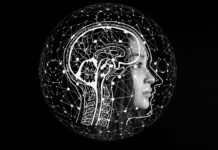“Where Police Violence Encounters Mental Illness”
In The Opinion Pages of the New York Times, Matthew Epperson discusses the devastating results of police acting as the primary responders to mental health crises. “If we are to prevent future tragedies, then we should be ready to invest in a more responsive mental-health system and relieve the police of the burden of being the primary, and often sole, responders.”
“The Impact of Shift Work on Health”
Medical News Today provides an overview of the research on the effects of shift work on the physical and mental well-being of employees. "Although...
Differing Depression Diagnostic Tools May Influence Research Findings
The type of diagnostic assessment used in research settings, either fully structured or semi-structured interview, may affect which participants in receive a diagnosis of major depression.
“People with Psychiatric Disabilities: Our Modern-Day Scapegoats”
For the North Carolina Law Review, Katie Rose Guest Pryal writes, that “ a psychiatric diagnosis, or involuntary civil commitment to a psychiatric ward—which is...
“Electronic Health Data for Postmarket Surveillance: A Vision Not Realized”
-Thomas Moore of the Institute for Safe Medication Practices asks, "What has been learned about electronic health data as a primary data source for regulatory decisions regarding the harms of drugs?"
Is Facebook a Structural Threat to Free Society?
From TruthHawk: Facebook's technology has an unprecedented ability to surveil and manipulate people.
Article →
Weighing in on Facebook’s New Suicide Prevention Strategy
-Facebook has made it easier for users to report posts from people who seem to be in psychological distress, but not everyone likes the plan.
Experts Raise Ethical Concerns About Machine Learning in Medicine
The use of machine learning algorithms (known as artificial intelligence) in the medical field raises a slew of ethical concerns.
Experts Stress Importance of Social Networks for Psychosis and Bipolar Interventions
Researchers develop a novel approach to mapping personal well-being networks for those diagnosed with severe mental illness (SMI) that incorporates social ties, connections to place, and meaningful activities.
“Why Are Young Westerners Drawn to Terrorist Organizations Like ISIS?”
"ISIS provides existential fast food, and for some of the most spiritually hungry young Westerners, ISIS is like a Big Mac amidst a barren wasteland of an existence,” Omar Hague writes in the Psychiatric Times. “Who actually joins ISIS? Not psychopaths or the brainwashed, but rather everyday young people in social transition, on the margins of society, or amidst a crisis of identity.”
Evolution or Revolution? Why Western Psychiatry Won’t Change by Incremental Steps
...but how realistic is it to expect that the biological skew of Western psychiatry can be sustainably changed one small step at a time?
The Power Thinker
In this essay for Aeon, Kolin Coopman explores the impact and legacy of Michel Foucault.
"It was a bio-power wielded by psychiatrists and doctors that,...
“Big Pharma and the Big Push for Patients to Take Their Meds”
“The pharma industry loses tens of billions in worldwide sales each year when patients don’t fill, or refill, their prescriptions,” Rebecca Robbins reports for STAT. So...
When Calling the Police Results in Harm, Not Help
From Slate: The death of Charleena Lyles, who was shot by the police after she called them to report a burglary, serves as a reminder...
The Empire Dreamt Back: Britain’s Use of Psychoanalysis
From Aeon: In the early 20th-century Age of Empire, officials in the British Empire sought to better understand their colonial subjects through the use of...
“Woman Hospitalized Involuntarily Wants Legal Aid for Mental Health Hearing”
A Canadian woman is attempting to assert her right to a lawyer in order to fight an involuntary psychiatric hospitalization. While homeless, the patient...
Compelled Disclosure of Campus Sexual Assault May Be Harmful for Survivors
The majority of universities require most or all employees to report disclosures of sexual assault, but these policies may be ineffective at addressing campus sexual violence and disempowering for survivors
Samaritans’ Online Suicide Surveillance App an Ethical Minefield
In Gigaom, privacy and security journalist David Meyer discusses the release of a new app from the UK Samaritans called "Radar." The app monitors...
“The Rise of the Medical Scribe Industry”
In JAMA, several Texas medical doctors and health information experts discuss the rapidly expanding number of "medical scribes" being hired by physicians to enter medical information into electronic health records (EHRs). Many doctors are finding electronic health records to be inefficient and unhelpful, they write, yet governments continue to mandate them.
Ethical Failings in Experimental Drug Safety Trials
Leading human subjects ethics researcher questions exploitation of uninsured minorities in experimental drug trials.
“The Devil is in the Details: How Patients’ Mental Health Data is at...
The Intercept illustrates the growing insecurity of our medical and mental health data in an age of privacy breaches. Individual stories detail instances of electronic therapy notes being shared between all doctors in a practice, employees being fired after mental health information is disclosed through workplace wellness programs, and police data on past suicide attempts being used to prevent Canadian citizens from crossing the US border.
Your Pills Are Spying On You
From Pacific Standard: The new Abilify MyCite pill, which contains a digital sensor that tracks whether a patient has ingested the drug, has the potential...
When Psychologists Deny Guantanamo Torture
Psychologist Roy Eidelson comments on the Society for Military Psychology’s criticism of the Hoffman report, which exposed the collusion between the APA and the CIA’s torture program. He writes, “the leaders of APA’s military psychology division have offered a very dark vision for the profession of psychology – a vision that we must reject, both individually and institutionally.”
Underestimating Social Determinants of Health Linked to Right-Wing Authoritarianism
Social determinants have been seen to have an equal, if not greater, influence on health as individual behaviors, yet this evidence is largely ignored. Researchers investigate why this is the case.





















